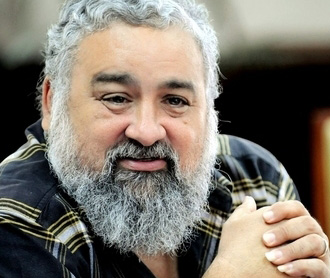
I have not seen the public service announcement (PSA) the gay lobby wish to have aired on public television, asking families to love their relatives who are homosexuals and lesbians. It was that great fifth-century bishop Augustine who said that "God loves the sinner, but hates the sin", and Mahatma Gandhi, the great Hindu philosopher and pacifist, took the same approach in the 20th century. If this is the only message that the PSA carries, who could reasonably object to it?
But the gay lobby want us to go further; they want more than tolerance and love. They want everyone to accept that homosexuality, lesbianism and any other type of unusual sexual behaviour (the 'All-Sexuals' in J-FLAG) is normal, and natural, and morally right; and they have been campaigning to attain this goal for some time now.
Campaign strategy
The first step in the campaign was to use the word 'homophobia' to refer to persons who disagree with their lifestyle, suggesting that being against homosexuality is some sort of pathological mental illness (like claustrophobia or agoraphobia or xenophobia). The term 'homophobia', invented by activist George Weinberg in 1969, has become an important tool for gay and lesbian activists to attack their detractors.
The second step in the campaign was to claim that homosexuality is not a choice, but that people are born that way. "Would someone in Jamaica choose a lifestyle that makes them a social reject," they argue, "and a target for verbal and physical abuse? No! Gays are born that way." For this to be true, there must be a gay gene, but none has yet been found. "Science is making new discoveries every day" is the retort.
But the 'nurture' hypothesis is well argued in the literature; in Jamaica, masculinity is under stress from several sources (domineering mothers and teachers, ineffectual fathers, aggressive and demanding actual and potential partners, feminism, and more). People who are socialised into a gay lifestyle will not feel that they are making a choice; they will feel they are born that way; in sociological theory, socialisation is so effective at transmitting norms and values that it operates unconsciously. There are enough testimonies from former gay people to argue that change is possible, where there is the will. People can overcome their socialisation.
Empty moralising
The third step in the campaign was to link the struggle for gay rights in the 21st century to the fight for emancipation of the slaves in the 19th century, and the struggle against racism in the 20th century. "Slavery and racism were considered normal and natural then," they argue; "the Church supported slavery and racism then, with arguments from the Bible, just as now the Church condemns homosexuality; the battle for the rights of homosexuals, lesbians and all-sexuals is the modern battle for freedom and justice; in a few years, we will look back and wonder what all the fuss was about, just like with slavery and racism."
It has been an effective argument, with an aura of logic about it. It has convinced a lot of people. It has the Anglican Church in the United States ordaining an active homosexual as a bishop, with his boyfriend in the front row of the cathedral, which has the local Anglican Church in a tizzy trying to explain it. It has human-rights groups like Amnesty International out to bat for gay rights, and local groups like Jamaicans for Justice struggling to find the words to defend it.
But it is ad hominem argument, seeking to attach the gay agenda to the successful moral campaigns against slavery and racism, and win support by emotional means. It does not provide any actual argument to support homosexuality itself. One could just as easily claim that bestiality or incest is the 21st-century moral issue, with just as much force of legitimacy.
We must be aware of how special interests seek to manipulate us with spurious arguments, and make us a part of their agenda. We should not be quick to put aside our traditional values with gay abandon.
Peter Espeut is a sociologist and a Roman Catholic deacon. Email feedback to columns@gleanerjm.com.
also see a lesbian blogger's response to a previous article from Mr. Espeut:
No comments:
Post a Comment